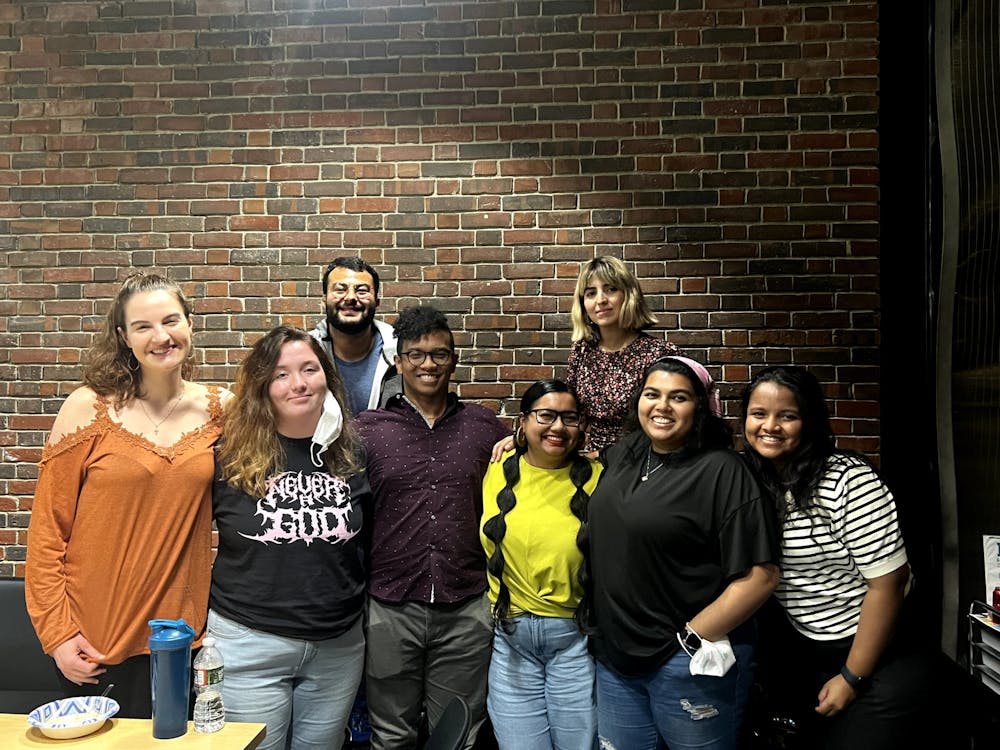The Graduate Student Council held its second general body meeting of the semester Wednesday night, discussing solutions to food insecurity, as well as emergency funding and legal help available to students.
GSC President Farha Mithila GS spoke about the Council's efforts to address food insecurity, including a revival of the GSC’s partnership with Brown Market Shares, which works with local farms to distribute food to University community members at reduced cost. The Council announced in September that it did not plan to continue the partnership this semester due to budget limitations, The Herald previously reported. But at Wednesday’s meeting, GSC unanimously passed a motion to allocate $1,000 from its savings to subsidize grocery bundles for 50 graduate students over the span of five weeks.
Associate Dean of Student Support Maria Suarez also spoke at the meeting, providing students with additional information about how to alleviate food insecurity and receive emergency funding.
Graduate students can apply through the UFunds portal for up to $500 in either an interest-free loan or Emergency Gap Funds, which do not have to be repaid, Suarez said. For students in urgent situations that require over $500, Suarez meets with an administrative committee to discuss their case and how to best assist them. She added that financial assistance could also be provided in the form of meal swipes.
Suarez acknowledged concerns from graduate students about the stigma around reaching out for financial help and encouraged them to see her for more personalized support.
Students who prefer to remain anonymous to Suarez can also reach out to GSC’s executive board, which will communicate their request for financial assistance, Mithila said.
Attorney Peter Cerilli ’78, who provides pro bono legal advice to undergraduate, graduate and medical students through the Student Activities Office, spoke to GSC members about how to take advantage of his services. In the past, he has advised students on matters concerning intellectual property, domestic relations, property, traffic violations, arrest, immigration and housing, he said.
He warned graduate students to be wary of landlords who require the first and last months’ rent in addition to a security deposit before moving in — a practice which is illegal in Rhode Island and can entitle a tenant to significant damages, he said. Multiple students at the meeting said that they had paid unnecessarily high security deposits without knowing about the law.
“My role is not to represent students, it’s to advise them,” Cerilli said, adding that all of his conversations with students are subject to attorney-client privilege and completely confidential.
Mithila also informed attendees that Facilities Management has promised to install menstrual product dispensers in University bathrooms after UCS and GSC worked together to submit a funding request last semester. GSC has been advocating for increased availability of COVID-19 testing kits and masks at the Graduate Center Key Office as well, Mithila added.
GSC continues to look forward to its “Know Your Power” seminar series, the first of which will be held on Oct. 12 in collaboration with the Department of Public Safety, according to Ramisa Fariha GS, chair of international advocacy. Future seminars will include collaborations with the Ombuds Office on Nov. 9 and the Office of International Student and Scholar Services on Dec. 5, she added.

Anisha Kumar is a section editor covering University Hall. She is a junior from Menlo Park, California concentrating in English and Political Science who loves speed-crosswording and rewatching sitcoms.





